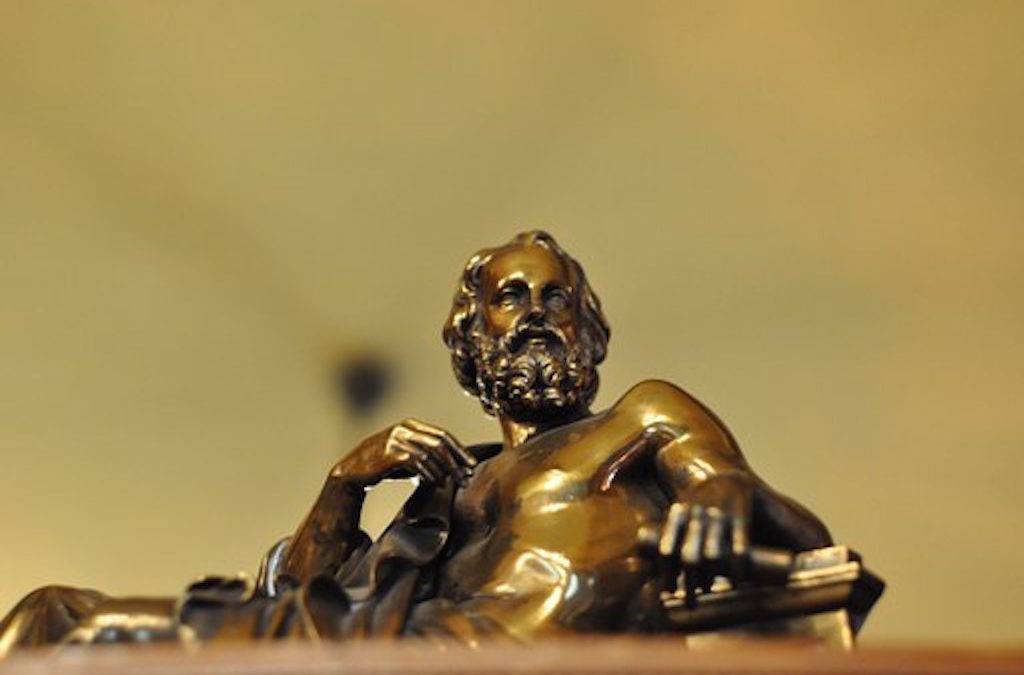
by Robert Mazzucchelli | Mar 1, 2019 | Forever Learning
Two years ago, I co-founded SportsEdTV with a bunch of really committed and smart people. I am learning so much every day from this experience about building a brand in the cyber world, and wanted to share some of my revelations.
After decades of marketing hundreds of brands in as many categories, SportsEdTV represents the first purely digital product I have promoted, meaning the entire experience – from marketing to product engagement – happens online. Users discover the brand online, engage with the brand online, and share the brand online. Only occasionally, do they encounter the brand offline, when they meet one of our coaches on the court or field, or in the gym.
SportsEdTV is aggregating a global community of athletes, coaches and parents across the world, and providing them with free world-class video instruction in over forty sports, as well as a forum for learning and meeting other like-minded people. If you play a sports at any level and want to improve or interact with other athletes, this online destination is for you. Or, as our tagline says: SportsEdTV. Making You Better. Anytime. Anywhere.
So, what have I discovered while launching this brand?
1) When launching a digital-only brand, you are a global brand from day ONE. Be prepared for a world-wide audience.
I am astounded that since we went live with our website six months ago, people from 130 countries have watched our instruction videos (and they are currently only in the English language!). There is no such thing as a gradual roll-out online. The roll out happens when you push the go-live button. When we launched, I assumed that mostly people from English speaking countries would be watching our videos initially, but about 60% of our viewers are from non-English speaking countries. This has forced our team to review all of our videos to make sure the lessons are easy to learn, even when the viewer only has some rudimentary understanding of English. We have used more graphics as a result, and more slow-motion repetition of key movements taught by our coaches. We have had to make sure to be culturally sensitive wit’s every word and action in our videos. No jokes that might offend someone because of the cultural or language barrier. For non-digital brands, a global roll-out can be planned in stages, with learning happening in each stage and applied to the next. Online, the timeline is collapsed and the world is your stage overnight. Literally. Be prepared.
2) Fluctuations in business volume can happen instantaneously. You need to be agile and move fast.
One social post or digital ad or blog post can have an immediate impact on user volume. This is good and bad, but it is a reality you need to assess constantly. In businesses where products are on a shelf, or are shipped to users, this process happens slower, and brands have more time to react and choreograph responses to events. But because our user experience happens entirely online and often in an instant from discovering the brand, I have seen small actions, like a share of a social post, spike views of a particular video wildly and almost instantaneously. Fortunately, I have not seen the opposite possibility, where a negative review or comment could tank the viewing of a video, but we are always prepared for either case. We can also cause a spike in viewing within hours when need be, so we are monitoring all viewing activity 24/7. Having a slow viewing day? Nothing a little boost in spending on Facebook can’t fix within a few hours. This type on instantaneous driving of a result, where you can find a potential user somewhere in the world, promote the discovery of your product within minutes and have them engaging with it immediately is a digital-only phenomenon. The good news of this digital-only reality is that you can manage business fluctuations easily and quickly. Agility matters. The bad news is that you, or your team, need to be watching ALL the time. Make sure you hire early birds and night owls.
3) Don’t overreact to individual data points, look for trends. Make data your friend.
Data is the blessing and curse of marketing today. We have more of it than ever before, yet much of it is useless in isolation and time consuming to wade through. In a digital-only business, data drives almost every decision and action taken. When we launched SportsEdTV, and I was presented with data from multiple dashboards on all sorts of viewer statistics and behavior, I was delighted and overwhelmed at the same time. Which data points mattered? Which data was more predictive? Which data could help drive product development? Which data could inform our ad spend? Which data could improve our website design? The questions are endless and created more than a few sleepless nights. Eventually, however, you find a rhythm to using data. You develop a sixth sense that helps you tune in to the data trends that really matter, based on the stage of development of your business. You develop ratios that represent the health of your business, and you start to figure out how the data can become a strategic and tactical friend, rather than an all-knowing, smothering adversary. If you are a digital-only business, find a way to make data your friend or you will not succeed.
It’s been only six months since our launch, and already I have learned so much. In fact, the team is in perpetual learning mode and that makes it fun to go to work every day. If you are in a digital-only, or even digital-first business, get tuned in to learning something new every day and applying it to your decision making. The internet is a fast-moving space in which to play, but it’s a great place to grow a big brand in a relatively short amount of time. More learning to share in my next post…stay tuned.

by Robert Mazzucchelli | Feb 2, 2017 | Forever Learning
“There are many arts among men, the knowledge of which is acquired bit by bit by experience. For it is experience that causeth our life to move forward by the skill we acquire, while want of experience subjects us to the effects of chance.” PLATO
The Experience Paradox is the fact that one needs experience to truly value the benefit of experience. How many of us have looked back as adults and said, “Wow, my dad was right.”? Admit it. We’ve all had that realization about a parent, a coach, a teacher, a colleague, someone older who we thought at the time didn’t really get it. And then one day, as we got older, we realized that they really did and we probably would have been better off to listen more to what they had to say. It takes experience to value experience.
When I started my first company, I was an intelligent, ambitious, confident, creative, hard-working twenty-four year old who knew almost nothing about the field I had entered – marketing. I didn’t work for a marketing company before starting my own, and I didn’t even take a marketing class in college. But what I lacked in training and experience, I made up for in belief, diligence and a willingness to do whatever it would take to succeed and be the best at my chosen craft. A little naive for sure, but I was young and too inexperienced to know better.
Within the first twelve months of starting Pinnacle Promotions, a sports marketing firm that later turned into an integrated marketing agency, I had devoured every book I could get my hands on about advertising, marketing and professional service businesses. I read every trade publication cover to cover each week and went to conferences to network and listen to experienced people give presentations about their work. My passion to learn enough to be able to out-think my competition was boundless and I soaked up everything I could learn like a sponge. But even with my daily studying, there were just some things that I could only learn by experience. To bridge the experience gap, my partner and I (another hopeful twenty-something with no experience) hired retired advertising and marketing executives for projects where we felt deficient in knowledge or just thought we would need some grey hair on the presentation team for credibility (I hate to say it, but in our youthful arrogance, it was usually more for the latter purpose). We didn’t know what we didn’t know when we started our company, so we just moved confidently forward on instinct and, often, bravado. Lucky for us, and with hindsight I emphasize luck, our determination and enthusiasm won the day enough for us to succeed in business.
That was thirty years ago when my career was just beginning its long and winding road. Today I know what I know and what I don’t. I’ve seen countless marketing problems and developed hundred of effective solutions. I’ve made mistakes and learned how to correct them quickly, before the impact felt was too great. I’ve learned to see the chain of events that can be created, good or bad, by a single decision. I’ve learned to identify the important issues and ignore the ones that don’t matter. My judgement has been forged through decades of being in the fire and taking responsibility for my successes and failures. By all description, I am now truly experienced and able to help clients with the confidence and ease that only comes after decades of practice.
As I think back on the beginnings of my career, and even some of the early middle stages, I would have benefited greatly by seeking experienced counsel more often. I usually arrived at effective solutions to problems or capitalized effectively on opportunities, but the path would have been less much rocky and the timeframe shortened had I gotten an experienced viewpoint a few more times than I did. Now that I am that experienced person, how easy it is for me to recognize the value that my experience brings to the table day after day.
So for all my young colleagues and friends, or anyone starting something new that they have little experience doing, here’s some advice – get someone who has been there to offer their perspective, expertise and contacts. Things will happen smoother and faster, and more by intention than by chance. You’ll need some luck, but stack the deck in your favor with experience. And don’t be scared off by the cost of an experienced voice. You know what they say. If you think a professional is expensive, try hiring an amateur.

by Robert Mazzucchelli | Jan 26, 2017 | Forever Learning
After selling the small marketing company I started six years earlier with my great friend Steven Roberts, I went to work in the advertising big leagues in my favorite building in the world, The Chrysler Building. I say big leagues because Bates Worldwide, my new employer, was owned by Saatchi & Saatchi Holdings, one of the top three largest advertising conglomerates in the world at that time. The Saatchi brothers of London were legends in the business and created a monstrous global network of agencies reminiscent of the British Empire. It must have been fate mixed with luck that I walked through the doors of that iconic Art Deco structure in December of 1993 and saw my name listed in the lobby on the building directory of one of the most recognizable buildings in the world (in white plastic letters pushed into a black background – this was before the computerized flat screen building directories common today). Robert Mazzucchelli, President, Bates Promotion Group. At thirty-one, I had made the starting lineup on a major league advertising team and couldn’t wait to get in the game.
In addition to being a divisional president, responsible for one of the newest and fastest growing areas of the business, I was also one of the youngest members of the executive committee of Bates North America, which gave me a up close look at the inner workings of Madison Avenue during some very formative years of my career. Prior to that, my small agency worked in a mostly consulting and project management capacity with some great clients, but we had a tiny staff and no departments full of experienced people like I now had at my disposal. One of the first things I learned at Bates, besides the fact that I was going to have to deal with some monumental egos, was that the place was filled with really smart people. In almost every meeting I attended during the first few weeks, I was impressed with the depth and breadth of thinking. This was the agency that coined the term “Unique Selling Proposition”, had made the famous Coca Cola “I want to teach the world to sing…” commercial, had built the Miller Lite beer business with the celebrity athlete-filled campaign “Tastes Great, Less Filling”, had built Avis Rent-a-Car with the slogan “We Try Harder” and was working on hundreds of great brands and campaigns around the world when I joined the company. Many of the older executives were around when those iconic campaigns were created, so it was like getting close to a bit of the magic of a great era in advertising. It was very inspirational and a bit intimidating at times. But I loved it.
The biggest lesson I learned in those early days at Bates was that being around lots of smart people every day, meeting after meeting made me better. There was no place to hide. You either raised your game, or got left behind. You either delivered great ideas, or they found someone else who could. I loved the high energy, pressure cooker environment that kept you on your toes all the time. My first twenty-four months in that job were some of the biggest professional growth years of my life, and while dealing with the bureaucracy of a giant $2 billion global company was sometimes frustrating, the learning opportunities far outweighed the inconveniences for an ambitious thirty-something executive.
New York was certainly my big city of dreams, and I thank all the smart people who forced me to up my game. I might not have made it without you.
P.S. Special points to anyone that knows the song reference in the title of this post. Hint: 1983




Recent Comments